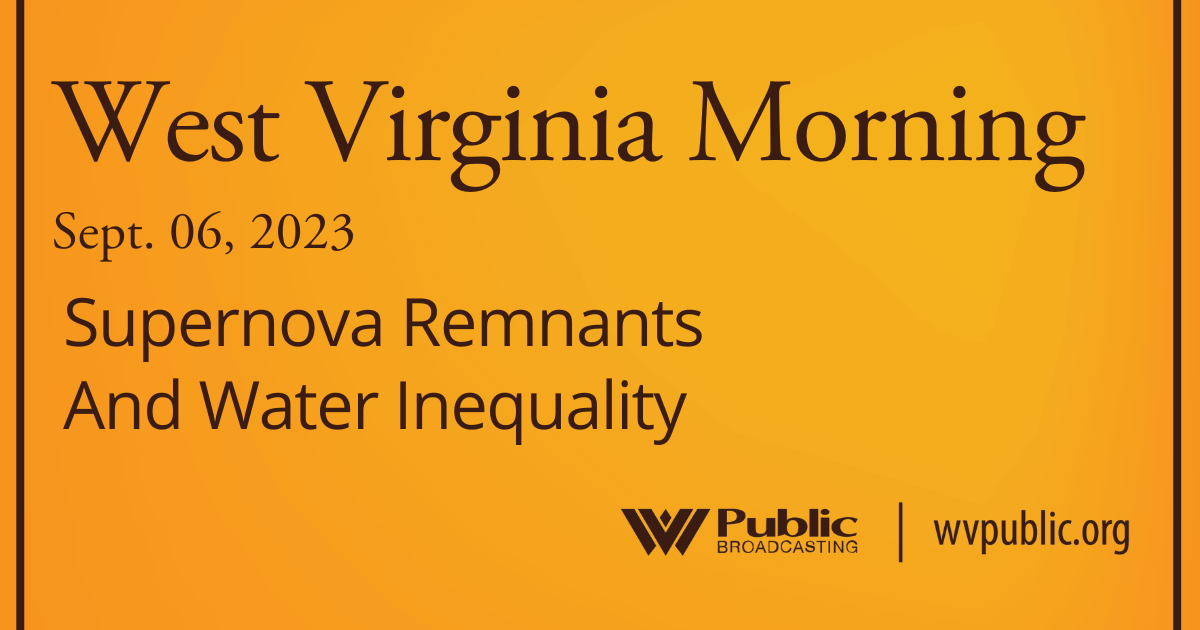Communities across the Ohio Valley are among an estimated 2 million Americans that do not have consistent access to clean drinking water and basic indoor plumbing, according to a report published Monday by two nonprofits, DigDeep and the US Water Alliance.
The report titled, “Closing the Water Access Gap in the United States,” synthesized data collected by the U.S. Census Bureau, including its American Community Survey, to identify six areas of the country where access to clean water is lagging. That includes some communities in Appalachia, which the report lists among six “hot spots” for inadequate water access.
“From all the data sources we looked at, we know at least 2 million people in the U.S. don’t have access to running water or a working flush toilet,” said George McGraw, founder of DigDeep. “But we also know because of some errors with the census that the number is probably much higher than that.”
The analysis finds people of color, low-income individuals living in rural areas, tribal communities, and immigrants are more likely to go without running water and basic indoor plumbing. Native Americans are 19 times more likely than any other group to have trouble accessing clean water.
The report states there are multiple reasons why some communities find themselves lacking access to clean water. One is a steep decline in federal funding for water infrastructure. Historical discrimination has also played a role.
In the 1980s, the federal government started placing more emphasis on loans over grants for water infrastructure. As a result, federal funding for water and wastewater systems has dropped from 63 percent in 1977 to less than 9 percent today.
Nationwide, the report finds the number of Americans without access to complete plumbing has declined. Between 2000 and 2014, those without water access dropped from 1.6 million to 1.4 million. However, the rate of decline has fallen in recent decades. For example, between 1950 and 1970 the percentage of the population lacking complete plumbing dropped from 27 percent to 5.9 percent.
“This suggests that the remaining communities lacking access face particularly entrenched challenges,” the report states.
Further analysis of state-level data by researchers at Michigan State University showed that while states made improvements, others including, Delaware, Idaho, Kansas, New Hampshire, Nevada, South Dakota, and Puerto Rico, saw the number of people without access to clean water grow.
“We’re worried in those places fewer people might have access to a working tap or toilet tomorrow than they do today,” McGraw said. “That’s a very alarming trend in a country that is as prosperous and has been as successful as we in extending services to all.”
West Virginia
In McDowell County, West Virginia, for example, the authors highlight three communities where crumbling infrastructure and population loss are creating a perfect storm.
In the town of Keystone, for example, the water system was constructed decades ago by coal companies that no longer exist. Today, the community, which stopped funding its police department in 2018, does not have the tax base to repair the leaking pipes.
In the nearby community of Mile Branch, many residents are not connected to any type of water system. Instead, some collect water from streams or other natural sources.
But the springs and wells many people used to gather drinking water may not be safe either.
When households are not connected to sewer systems or septic systems, waste is sometimes piped straight into nearby streams. The practice, also known as straight piping, can contaminate water used for drinking and cause health problems including staph infections and gastrointestinal issues. Water sampling from 2012-2014 in southeastern Kentucky found as many as 64 percent of the sites exceeded the Environmental Protection Agency threshold for E. coli bacteria.
Despite the region’s challenges, the report’s authors also highlight solutions across Appalachia that boost access to clean water.
For example, in McDowell County, the authors profiled the Five Loaves & Two Fishes food bank, which has become the de facto source of bottled water across the county. As a trusted organization within the community, the food bank is able to not only deliver drinking water, but check in with elderly and other vulnerable residents.
In southeastern Kentucky, the faith-based organization Red Bird Mission has installed a water filling station. The authors note that some residents fill up at night to avoid being seen, “an indication that life without water access still carries a stigma.”
Radhika Fox, CEO of the US Water Alliance, said the prolonged failure to provide water and sanitation access in Appalachia is, in part, a question of the country’s priorities. She said while for most communities local taxes can fund maintenance and service, in impoverished, rural communities that may not be the case.
“We need to honor communities that live in rural America,” Fox said. “And when maybe the math might not always pencil out, we need to figure out how we utilize public investment to build that water safety net for those communities as well.”
